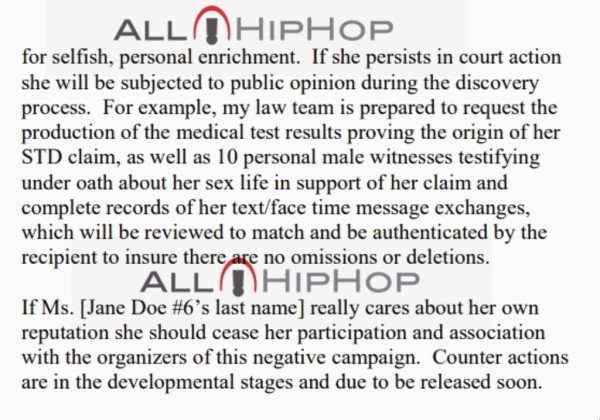(AllHipHop News) Prosecutors are firing back at R. Kelly’s attempt to learn the names of two women who have accused him of sexual assault.
R. Kelly’s lawyer complained that he cannot mount a proper defense without knowing the identities of his accusers.
Lead prosecutor Richard A. Donoghue proved his claims that the singer is hell-bent on exposing the women by presenting a sinister letter R. Kelly allegedly sent to Jane Doe 6.
According to Donoghue, R. Kelly has allegedly exploited his inability to read or write in a crusade to terrorize his victims by mailing them messages along with lewd, compromising pictures.

The screenshots included text messages between R. Kelly and Jane Doe #6, and were sent from his iPhone. The photographs included a
close-up picture of Jane Doe #6’s face and the top portion of her exposed breasts.
Another image displayed Jane Doe #6 kneeling on a bed with her butt exposed along with an ominous threat: “I assure you this would not be considered a Sunday go-to-meeting dress.”
“The defendant’s writing limitations do not shield him from direct association with this letter as, on its face, other associates of his were involved in mailing the letter and screenshots from the defendant’s iPhone were sent with the letter,” revealed Richard P. Donoghue.
“His literacy difficulties, of course, do not mean that the defendant is incapable of directing others to draft a threatening letter on his behalf or of being informed of and approving its specific contents,” Donoghue argued.
A judge has yet to rule.
